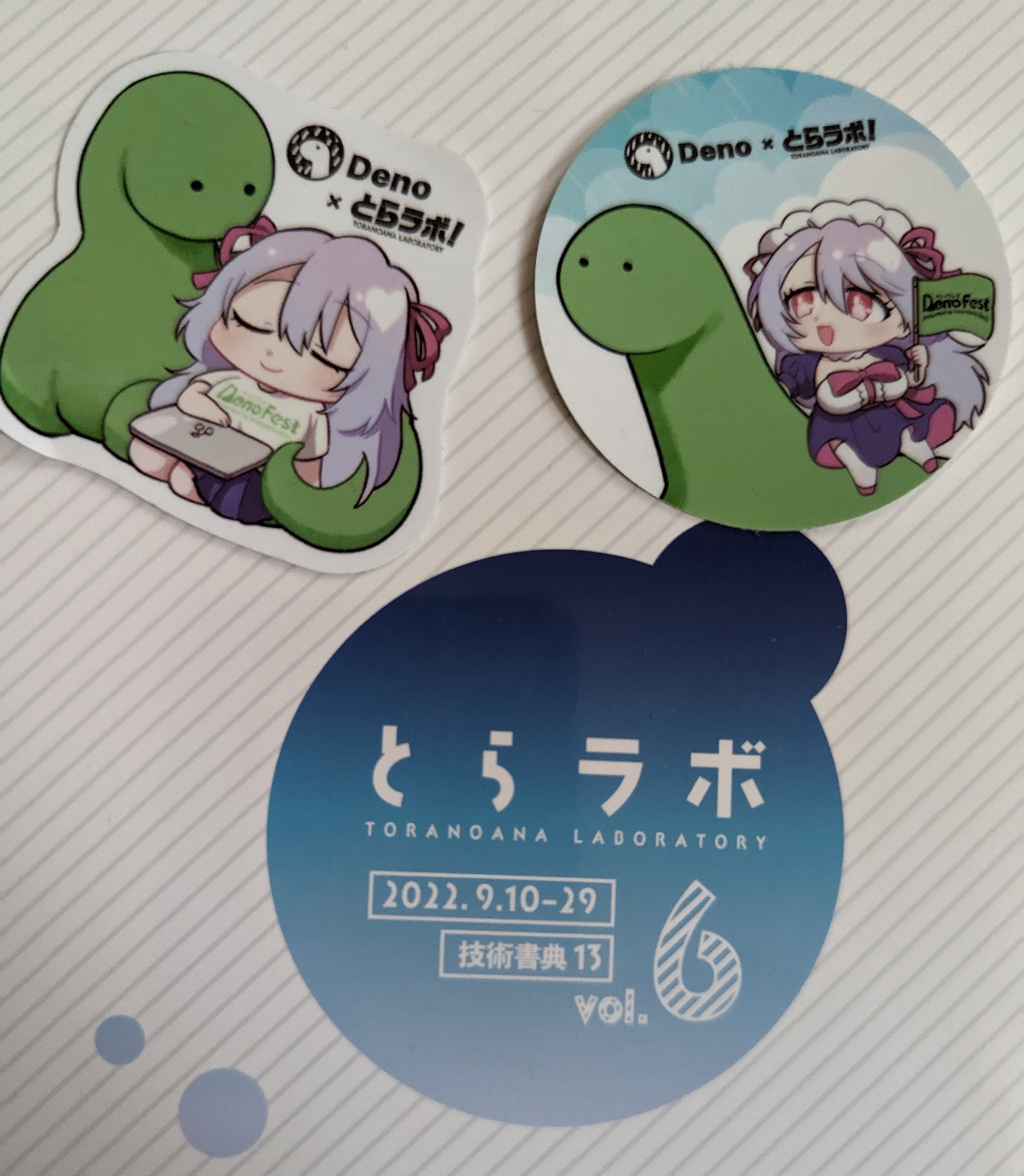Notes from Deno Fest
To reach a broader audience, this article has been translated from Japanese.
You can find the original version here.
Introduction
#On October 20, 2023, Deno Fest was held in the holy land of Akihabara, and as a fan of Deno, I secretly participated in person.
It was also announced on the official blog.
Register for Deno Fest Tokyo, October 20th 2023
It was simultaneously broadcast on YouTube, and the archive is available for viewing.
The timetable is listed on the special site below.
Deno Fest - presented by toranoana.deno
The hashtag on X is #deno_fest.
The speakers included Ryan Dahl, the creator of Node.js and Deno, Luca Casonato of Fresh, Yosuke Furukawa, the organizer of Node Gakuen, and Yusuke Wada of Hono, among other distinguished members.
Overall Flow
#The event was packed with content, starting with Ryan's keynote speech, followed by sessions from Furukawa and Luca, totaling 16 sessions. There was also a "Let's Ask the Development Team" segment in both the first and second halves, with Hinozawa from Deno Company serving as the interpreter.
Memorable Moments
#In Ryan's keynote speech, he demonstrated Deno's features through live coding, emphasizing Deno's ability to run as a single binary and the excellent development experience of using TypeScript, testing, and linter without any configuration. He also introduced Deno KV, which is now in open beta, and dnt, a tool that makes it easy to publish Deno modules as NPM modules.
In Furukawa's session, he reviewed the history of JavaScript runtimes such as Node.js and provided an overview of the current situation. He explained that the emergence of runtimes like Node.js, Deno, and Bun has led to healthy competition, benefiting end-users with the formation of the WinterCG organization to standardize runtimes outside the browser.
In Wada's session, he talked about how Hono, which operates solely on Web Standard APIs by WinterCG, can run anywhere. He demonstrated running the same Hono app on Cloudflare Workers and a Service Worker in the browser, showing how the Service Worker intercepts the response from Cloudflare Workers to return the same response from the browser.
Kevin from Deno Company, in his session titled "The state of web frameworks in Deno," covered seven web frameworks running on Deno. He conducted a quiz in a millionaire format with respondents from the audience, introducing their features, which greatly enlivened the session with luxurious prizes.
The session covered Hono, Lume, Astro, Express, Docusaurus, SvelteKit, and Fresh.
This site used Eleventy for SSG but recently switched to Lume. There is also a series of introductory articles on Lume.
Lume入門
In Divy's session on FFI in Deno, he demonstrated live coding in Rust, calling it from FFI, and measuring it with deno bench.
Other interesting sessions included developing apps using Deno KV, explaining Deno's structure and how to contribute, among others.
Personally Interesting Points
#- In Ryan's live coding, Copilot was heavily generating code.
- When Luca was asked about the cloud hosting Deno Deploy, he answered that from the user's perspective, it's just Deno Deploy, so they don't need to worry about it (though he did properly disclose the hosting provider).
Conclusion
#I was glad to participate in a festival full of Deno love by both developers and users. On the day, the venue played the sound of Deno's mascot, Dino-kun, and there were many exciting features like original gacha. I would like to thank the members of Toranoana Lab for organizing this wonderful festival.
I hope to continue sharing information on this site to help Deno thrive even more.

